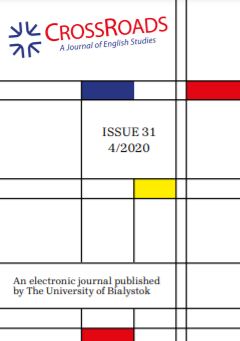Selected aspects of the conceptualisation of success in English and Polish
Selected aspects of the conceptualisation of success in English and Polish
Author(s): Katarzyna Lach MirghaniSubject(s): Language studies, Semantics, Comparative Linguistics, Western Slavic Languages, Stylistics
Published by: Wydział Filologiczny Uniwersytetu w Białymstoku
Keywords: conceptualisation; metaphor; mapping; source domain; target domain; success;
Summary/Abstract: Conceptualisation is “the process of meaning construction to which language contributes. It does so by providing access to rich encyclopaedic knowledge and by prompting for complex processes of conceptual integration” (Evans 2007: 38). Concrete, non-abstract entities are easy to grasp and to conceptualise with the use of the senses. A problem occurs when the mind has to form an idea about abstract concepts that cannot be seen, heard, smelled, or tasted. Linguists (Evans & Green 2006; Gibbs 1999; Kövecses 2010; Lakoff 1986; Lakoff & Johnson 2003) proved that people share a tendency to create conceptual analogies between abstract concepts and concrete entities by mapping the properties of the latter upon the former. It has been proved (Trojszczak 2016, 2017) that people share conceptualisations between languages. The primary goal of this comparative study was to examine the conceptualisation of success in two languages, English and Polish, in order to identify differences and similarities. The results of the study proved that people share the conceptualisation of the analysed target domain in both languages, which means they understand success in the same terms. There is a difference in the intensity, however; some metaphors are more widely used in one language and some in the other. There is also a difference in the linguistic expressions that constitute the conceptualisations.
Journal: Crossroads. A Journal of English Studies
- Issue Year: 2020
- Issue No: 04 (31)
- Page Range: 109-129
- Page Count: 21
- Language: English

